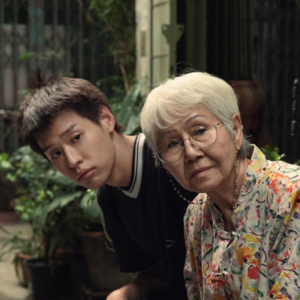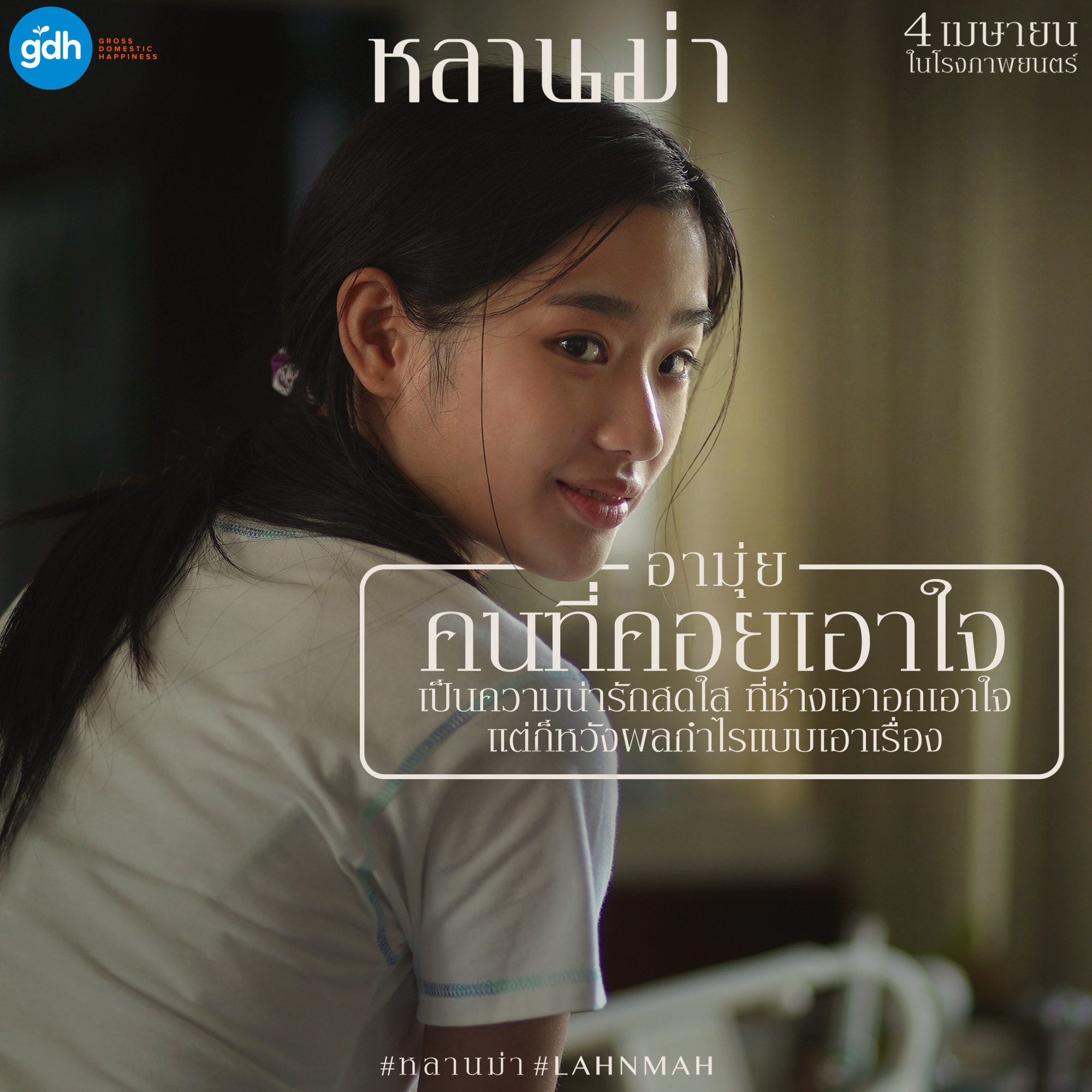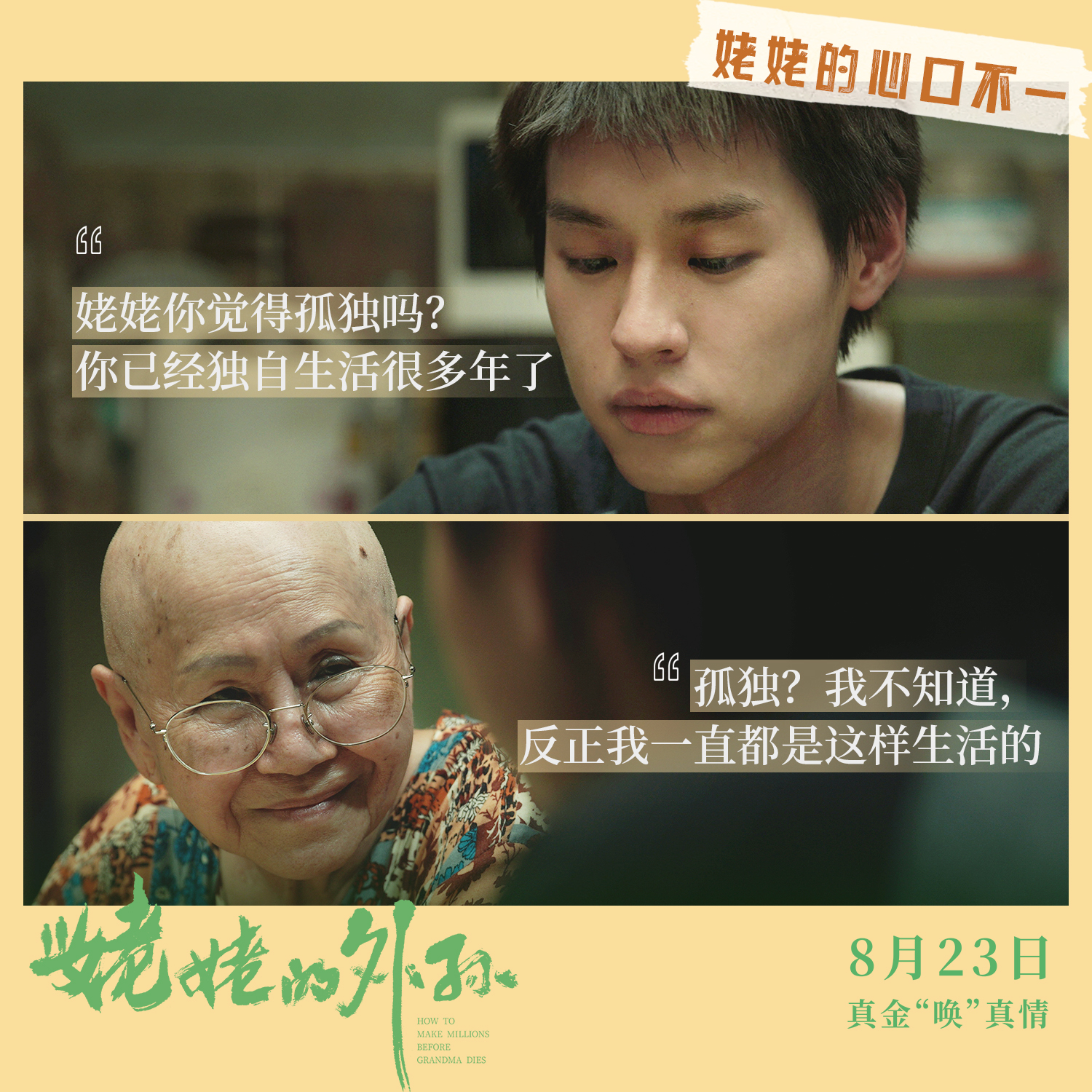
Vol.15 “儿子继承遗产女儿继承癌症”?聊聊不公平、有条件的爱 |《姥姥的外孙》

老派90
Deep Dive
Why does the film 'How to Make Millions Before Grandma Dies' have different titles in different regions?
The film has different titles to reflect cultural nuances and audience expectations. In mainland China, it's titled 'Grandma's Grandson,' conveying a warm, familial story. In Taiwan and Southeast Asia, it's called 'Golden Grandson's Revenge Plan,' emphasizing the financial motives. In Hong Kong, it's 'Full-Time Good Grandson,' adding a hint of irony. The original English title, 'How to Make Millions Before Grandma Dies,' directly highlights the financial stakes.
What is the central conflict in 'How to Make Millions Before Grandma Dies'?
The central conflict revolves around the protagonist, An An, who, inspired by her cousin Mei, plans to care for her terminally ill grandmother to inherit her wealth. However, her scheme is complicated by her uncle's efforts and her grandmother's discerning nature, making her path to inheritance far from straightforward.
How does the film explore the theme of conditional love?
The film delves into conditional love through characters like Mei and An An, who care for their elderly relatives with the hope of inheriting property. While their actions are driven by financial motives, they also show genuine affection and care, illustrating the complexity of love that is both purposeful and heartfelt.
What are some key scenes that highlight the challenges of elderly care in the film?
Key scenes include Mei changing her grandfather's diaper with ease, showing the physical and emotional toll of caregiving, and An An's grandmother confronting her about her ulterior motives for care. These scenes highlight the sacrifices, emotional labor, and ethical dilemmas involved in caring for the elderly.
How does the film address the issue of inheritance and family dynamics?
The film addresses inheritance and family dynamics through the grandmother's decision to leave her property to her youngest son, despite the efforts of other family members. This decision sparks debates about fairness, gender roles, and the emotional complexities of familial relationships, particularly in East Asian contexts.
What is the significance of the grandmother's decision not to intervene in her children's conflicts?
The grandmother's decision to remain silent about her children's conflicts reflects her acceptance of life's complexities and her focus on preserving familial harmony. This 'see but don't speak' approach underscores her wisdom and prioritization of relationships over confrontation.
How does the film portray the loneliness of the elderly?
The film portrays elderly loneliness through the grandmother's character, who often eats leftovers and expresses her dislike for the post-holiday period when she is left alone with an empty house. Her loneliness is likened to a 'loneliness cancer,' highlighting the emotional and social isolation many elderly individuals face.
What are some interventions suggested in the film to combat elderly loneliness?
The film suggests interventions like reminiscence therapy, where elderly individuals recall past memories to boost their sense of self-worth and happiness. Another example is the growing trend of young people helping their elders write memoirs, providing both emotional comfort and a sense of legacy.
How does the film critique traditional burial practices?
The film critiques traditional burial practices by contrasting them with modern, more efficient methods. It highlights how traditional funerals, with their extended rituals and close proximity to the deceased, offer more emotional closure and a sense of connection compared to the impersonal nature of contemporary funeral arrangements.
What role does art play in addressing the needs of the elderly in the film?
The film subtly touches on the role of art in elderly care by mentioning activities like square dancing, which serve as a form of social engagement and creative expression. These activities help elderly individuals stay physically active, socially connected, and mentally stimulated, improving their overall well-being.
- 影片《姥姥的外孙》豆瓣评分9.0,讲述泰国华人家庭的养老故事
- 影片名称在不同语境下的翻译差异,反映了文化差异对影片解读的影响
- 影片以小清新的风格讲述了孝道与财产纠缠的家庭故事
Shownotes Transcript
一部讲述泰国华人家庭故事的电影——《姥姥的外孙》结束了这个潮湿、闷热和漫长的夏天。
这个127分钟的影片林林总总把“养老”相关的细碎话题一一展开:财产纷争、墓地选择、老年的病痛与孤苦……灯亮之时,却能感到一丝解脱和痛快,终于有一部影片把这些人性幽微的“褶皱”摊平、熨开。
今天,我们也想展开聊聊里面那些不说“不痛快”的问题和瞬间:**养老能换来遗产吗?有目的的爱有错吗?无条件的爱存在吗?姥姥和妈妈为何总吵架?老年孤独怎么破?**一边讨论,我们也一边滋生出了很多新的想法和议题。越来越觉得,老年这个阶段,真的可以更丰富、更舒展。
📝 Show Notes:
01:49 不同的语境,不同的片名
03:55 忍不住从“阿梅”聊起

06:20 阿梅对姥爷,真的有爱吗
7:44 有目的的爱,你能接受吗?
14:15 无条件的爱,存在吗?
19:40《琅琊榜》:如何看待梅长苏对萧景睿这种有目的的友谊?
23:54 阿梅放弃抢救姥爷,是冷血、还是清醒?
26:51《我的青春谁做主》:面对抢救抉择,姥姥的果敢与勇气
29:12 养老这活儿怎么分?“放在台面上讨论”,又难又重要
32:17 “儿子继承财产,女儿继承癌症”,果然?
44:18 承担越多的家庭责任,就越难进与爸妈和平相处

52:58 看破不说破,好难……
58:16 姥姥得的是“孤独癌”

1:00:18 怀旧疗法:有一批年轻人开始给老人写回忆录
1:07:42 曾经,墓地 很近
1:20:18 广场舞也是艺术疗法
【关于节目】
“老派 90”是由「加薪」「大吉」两个 90 后媒体人,创建的一档关于“养老”的播客。主播加薪,ESFJ,资深数据新闻人,曾供职于财新等多家媒体。主播大吉,INTP,前资深媒体人,重返校园,南洋理工“老年学”在读。
所谓“老派”,不是刻板守旧,而是想理解老年一派,想提前站在 80 岁自己的面前,说些或做些什么。有一天,我们会不畏惧老去。
【听友交流】
⭐️听友微信群:plcz2023
欢迎加入“老派 90”听友群,日常会分享养老相关信息,如书籍电影、政策发布、行业信息等。
背景音乐:
หยงหย่วน永远 (Ost. หลานม่า)(Ever-Forever)- Billkin
封面图:
电影《姥姥的外孙》